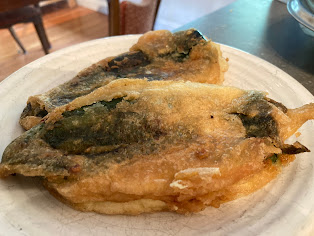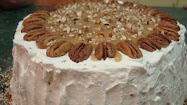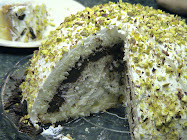In memory of Freda Schroeder, October 23, 1935–November 20, 2020
rest in peace beloved aunt
July 11, 2020: Crouching next to the strawberry row, knees creaking and wrists aching, I push aside plants, looking for bright red clusters of berries to fill my basket. I suddenly remember my mother making a strawberry-banana salad with mayonnaise-honey dressing for her parents and saying how much her father loved that salad. I pause in my picking. Hot tears sting my eyes.
STRAWBERRIES I
When I was young, the only u-pick strawberry farms anywhere near us were in Hadashville, a 45-minute drive east of Blumenort. Here the soil was sandy and the strawberries thrived. We left early—5:30, I think—because we didn’t want to risk being turned away from a strawberry field where all the rows had already been assigned. I hated—hated!—getting up so early, but I was always eager to go. I wonder now for how long I remained grumpy as we drove. In the tiny hamlet of Hadashville, we crossed the railway track north of the Trans Canada Highway, turned right, and in half a mile we were at the strawberry farm. We picked strawberries until all of the 1-gallon plastic ice cream pails we had brought with us were full, all of which we set in the trunk of our 1969 green Biscayne Chevrolet. I can’t remember whether we kept one pail in the car to eat on the drive home. I suspect not. But we did eat strawberries later in the day as we were hulling them. Then Chanlena Farms opened up in Greenland, only a few miles from Blumenort, and we began picking there.
 |
| Left to right: Kerry Fast, Rosabel Fast, Linda Janzen (my great-aunt), Emily Fast Hadashville, MB, c. 1980 |
I have always loved picking strawberries. Even the early rising as a teenager and now the painful knees, back and wrists of middle age have never dulled my anticipation and joy in picking.
STRAWBERRIES II
My mother talked more about her father to me than about her mother, and when I pressed her for stories about my grandmother, she so often said that she had been sickly and how finally, once she had had her gall bladder removed, she was like a new mother. “But Freda and Mary would know more,” she would add. Maybe she recommended these two youngest sisters because they had known their mother intimately at a time when my mother was far removed from her parents. In 1952 my grandparents and their youngest five children moved to Mexico, as did my parents and three married siblings of my mother, where they lived on Quellen Kolonie, a Kleine Gemeinde Mennonite colony in northern Mexico. My parents lived there for only three years before returning to Manitoba, while my grandparents remained for another eight. For those eight years, my mother interacted with her parents only through letters and the occasional visit. That separation ended on May 4, 1963, at 9:00 a.m., when she and her brother Henry and sister-in-law Margaret welcomed their parents back to Canada at Union Station in Winnipeg.
After my mother died, and I could no longer prod her memory, I finally heeded her advice, and a few years ago I prepared faspa for my two aunts. I wanted to hear about my grandmother, their mother, of whom I knew so little. Our conversation focused largely on the years in which my grandparents and their younger children lived on Quellen Kolonie. My mother’s instinct had been correct—as teenagers, my two aunts immersed themselves in farm life on the colony. And I heard about strawberries. Mexican strawberries were, by their account, very good. Both aunts had no doubt that their mother had made the best-ever strawberry pie, and my aunt Freda enthusiastically mimicked her mother deftly and swiftly rolling out the pastry. This was indeed a different grandmother than my mother had described. She never talked about her mother making strawberry pie or any other pie for that matter, and she never made strawberry pie herself. But she did can pantry shelves-full of strawberry preserves, like her mother did.
 |
| Left to right: Tina Fast, Freda Schroeder, Mary Friesen |
Strawberries are mentioned several times in my grandparents’ diary in the years they lived in Mexico. No wonder my aunts remembered them with such enthusiasm. In 1956, my grandparents purchased strawberries at least three times. On one of these occasions, my grandmother noted that she had canned eight quarts from the basket of strawberries they had bought. In March 1958, my grandmother recorded hulling strawberries, and on April 15, 1959, she canned five baskets of strawberries. That’s 40 quarts of preserves if the baskets were the same size as they had been in 1956. The following year, in February, she again canned strawberries as she did on March 1, 1962. The next day she baked pie. I can only assume that that was strawberry pie! On May 24 of the same year, my grandparents again bought strawberries, and on the following day, my grandmother canned them all, she wrote. My grandparents and their many visitors will have enjoyed many a faspa with tweebuck (buns) and strawberry perserves.
But it was after their return to Blumenort in 1963 that their own strawberry production picked up. On May 26, 1964, a year after they moved back to Manitoba, my grandfather planted strawberries. He didn't record how many plants he put in. But on May 10, the following year, he planted another 200 strawberry plants, for which he paid three cents a plant. On July 10, my grandmother and Taunte Mary picked strawberries. On the 15th, my grandparents supplemented their own strawberry harvest with 18 pounds of berries my Taunte Greeta brought over. These cost them 30 cents a pound. The next day my grandfather hulled these strawberries before he took his saw blade to Steinbach to be sharpened. The following day my aunts Mary and Freda helped my grandmother can them. On October 15, my grandmother covered the berry plants with straw for the winter, which required considerable physical effort on her part, she noted.
On June 4, 1966, my grandfather recorded that the strawberries in their garden were beginning to bloom. A month later, on July 4, my aunt Mary picked 20 pounds of strawberries from these plants. The next day, my grandmother recorded that she made pie with their first strawberries of the season. The next day, July 5, Taunte Mary again picked strawberries. On the 11th, my mother and Taunte Freda picked strawberries for their parents, and on the 13th, once again Taunte Mary picked strawberries, but this picking yielded only 9 pounds. On the 16th, my grandfather recorded that Tina, my mother, picked the last of the strawberries—4 pounds. On the 18th, my grandmother described her day: “I worked on my quilt and baked bread and zweibach. Baked pie of the last strawberries.” The diary doesn’t record who covered the strawberries that year as winter loomed, but the 1966 strawberry season for Abram R. and Elisabeth U. Plett had been abundant.
This large strawberry production continued for a while. And let me remind you that there were raspberries too, which my aunts, siblings and cousins picked! My mother was known to shake her head at what she saw as her father’s “overboard” enthusiasm for raspberry production. (I suspect she felt the same way about his strawberries). But as the years progressed, my grandparents’ diary records a gradual shift away from strawberry production to their daughters and daughters-in-law (and their children, no doubt) picking strawberries for their parents at u-pick farms rather than on the back forty of my grandparents’ yard.
STRAWBERRIES III
Near the end of his life, my grandfather, Groospape as I called him, was hospitalized several times because of a large, diabetes-related sore on his leg that wouldn’t heal. Groosmame was home alone for three long stretches of time in the fall and winter of 1978—dark days indeed. Five of their daughters and three of their sons lived nearby, two sons lived in the Interlake, about a 2-hour drive away, and a daughter in Mexico. My grandparents’ diary tells me that these children were devoted in their care for their parents in those long months. Taunte Neeta often brought tweebuck she had baked. On December 29, 1978, Uncle Henry brought four loaves of bulkje (white bread) made by my Taunte Greeta. My mother often did their laundry. My aunt Mary lived next door and kept a close eye on her parents. Her children are often mentioned in my grandparents’ diary as helping out in the house and in my grandfather’s shop or having faspa with their grandparents (oh, how I envy those cousins). My uncles and aunts took turns giving Groosmame almost daily rides to the hospital to see her geliebte (beloved) husband, and when my grandfather was home, their children continued to check up on and visit their parents daily. On one occasion when my mother came home after dropping off her mother following a visit to the hospital—perhaps on January 16, 1979, when Groosmame noted that “Tina took me to see my husband. She also came in for a little while”—she remarked how Groosmame had kissed Groospape as she left his hospital room. This was not something my mother had seen very often in her life, if ever. In diary entries that my grandfather and grandmother wrote, so often in that last year, after noting which child came to visit or bring food, concluded their entries with “thank-you,” as if to ensure their gratitude would endure beyond their allotted time on earth and its depth be felt by their children and grandchildren in years to come when they read their diary. These unfamiliar gestures of tenderness and affection extended by Groosmame and Groospape and the vigilant care offered by their children in this time of darkness were nothing other than an expression of the love they had fostered for each other in the many years they had been a family.
I remember that my mother would go to her parents to dress her father’s sore when he was not in the hospital. I remember her worrying that the sore was not healing. I think my mother must have known that he was nearing the end of his life, or at least feared that he was. I, as a teenager, was oblivious to the loss my mother was dreading. One Sunday morning in late January 1979, when he was home on a Sunday pass, Groospape died. He was 81 years old. I was 14. My mother was nearly the age I am now.
On that Sunday in late January, when all my uncles and aunts except Taunte Esther, who lived in Mexico, had gathered at their parents’ house to offer their fragmented grief in support of each other and their mother, Groosmame lay down in the afternoon to rest but did not wake up. She had had a stroke and died the following evening. My mother said time and time again how grateful she was that her mother would now not have to live apart from her husband, but she was mostly silent about her own staggering loss.
I can’t remember which year my mother made the strawberry-banana salad with mayonnaise-honey dressing for her parents, but it was in the final few years of their lives—perhaps it was the July 1978 strawberry season.
________________________________________________________________________________________
Elizabeth Unger Plett, May 6, 1901–January 29, 1979
Abram Reimer Plett, November 25, 1897–January 28, 1979
Aganetha (Nettie) U. Fast, December 3, 1917–January 5, 2003
Elizabeth (Lisa) U. Friesen, February 10, 1919–April 27, 1988
Henry K. Plett, November 17, 1921–August 23, 2006
Katherine (Tina) K. Fast, November 14, 1923–May 1, 2014
Jacob K. Plett, July 3, 1925–October 13, 2013
Cornelius K. Plett, September 17, 1927–November 4, 1927
Thomas K. Plett, June 4, 1929–October 21, 2017
Esther K. Petkau, April 3, 1931–December 18, 2019
Klaas (Nick) K. Plett, February 12, 1933–January 31, 2020
Freda K. Schroeder, October 23, 1935–November 20, 2020
Mary K. Friesen, January 1, 1939–
Abram K. Plett, May 22, 1941–May 2, 2020
_______________________________________________________________________________________
Thank you to my sister Julene for her memories of my grandmother’s kiss and my mother’s exasperation. Thank you to Viola and Emily for discussing strawberry picking and our grandmother with me.
Thank you Taunte Mary and Taunte Freda for sharing your memories with me! Your story about your mother's strawberry pie sparked the idea for this blog post.
I have drawn much of the material for this post from Family Diaries: Elizabeth U. Kornelsen and Abram R. Plett, Volume 1, 1917 and 1937–1959 and Volume 2, 1960–1979. An extremely big thank you to Taunte Marie for translating the diary of her parents-in-law from German into English. Thank you also to her daughter-in-law Erna Plett for typing up her translation and her daughter Lynette Plett for formatting and printing the diary. This is truly a priceless gift you have given our family.
My mother used overboard when she was sputting (mocking) and pronounced it with Plautdietsch vowels to more or less rhyme with the English gourd.















































